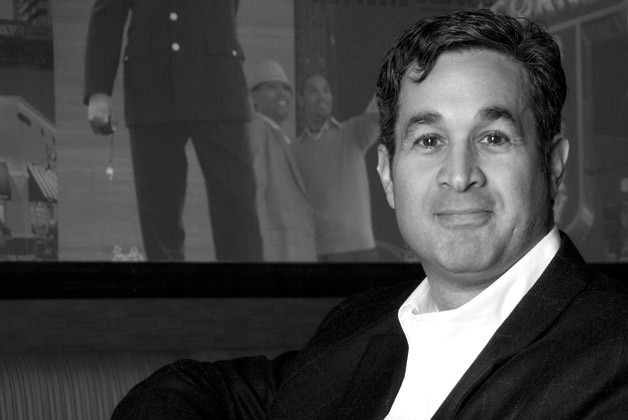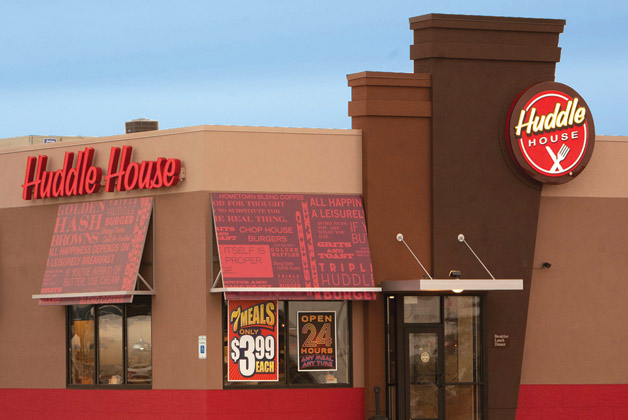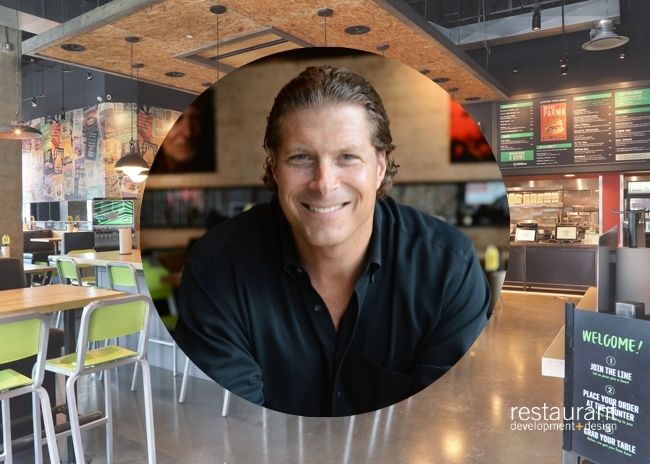Corner Bakery Café is on a roll. The Dallas-based chain, purchased in 2011 by Roark Capital Group, is in the midst of an aggressive franchising drive that last year saw it open 20 new restaurants and more than double the number of area development agreements signed in any previous year.
Those agreements added 125 cafés, raising the total to 288 units under development. This year, the company is on track to double that pace and by 2015 plans to have doubled its total U.S. footprint. Leading the charge is Jonathan Benjamin, who in less than two years has set the wheels in motion for Corner Bakery Café to become a major national competitor.
rd+d: Corner Bakery Café has long grown relatively quietly, slowly and mostly through corporate expansion. Clearly, that's no longer the case. What's changed?
JB: Roark's business model leans more toward an aggressive franchising approach and they saw Corner Bakery Café as a tremendous vehicle to be able to expand rapidly into the bakery-café area of fast-casual dining. There was really only one dominant player and Corner Bakery Café has a lot of economic and menu advantages that would make it a legitimate contender in the field. So they hired me a year and a half ago to lead franchise sales. I worked to conceptualize a go-to-market approach that would really let the world know that we were making a big push into franchising. We started from scratch — there was no dedicated executive position for franchise sales prior to my arrival. They had a franchise sales person, but the approach was reactive. We're now actually going to market, announcing our presence and trying to welcome new franchise partners.
rd+d: What are some of the key elements of your go-to-market approach? Any new sales trends you're embracing?
JB: Our approach includes everything from new sales collateral to trade show activity to e-mail marketing to good old-fashioned cold calling. We've also developed a fairly robust PR effort and have completely revamped the franchise sales area of our website. As far as trends go, what I'm seeing is a move towards back-to-basics strategies. Over the past few years there had been a lot of hype with social media and some other online applications. They may have made the franchise salesperson's life easier but with rare exceptions you just are not going to make a sale via social media. One of the things that I've learned is that you have to be willing to try some old-school, boots-on-the-ground things that worked in the past, as well.
rd+d: What's the sales infrastructure at Corner Bakery Café like now?
JB: In addition to my position, which is new for the company, I've hired two sales directors with franchise experience and proven track records of success. They quickly became indoctrinated into the Corner Bakery Café culture. We all call ourselves Breadheads, and that culture extends to franchise sales, as well.
rd+d: Is being a Breadhead a secret to the success your team seems to be having?
JB: I can't reveal all my secrets, but part of the ability to succeed when you're selling franchises, or selling anything on a long-term basis, is credibility. We all spend a number of weeks training in the cafés, doing everything from making Paninis to riding shotgun on catering deliveries. As such, we're attuned to most of the functions of the individual cafés as well as to operations on a multiunit level. That helps us gain credibility with the individuals and organizations that we're selling franchises to. Also, I let our executive team know where our strengths and weaknesses are, how we're attacking them, what the strength of our pipeline is and who the individuals in it are. That way, not just the sales people but the entire executive team is able to credibly address prospects' questions and concerns. It's a joint effort.
rd+d: Beyond being able to make a mean Panini sandwich, how do your reps set themselves apart as liquidity returns to the market and competition for franchise sales heats up?
JB: They strive to be what I call the CEOs of their territories. They act more as consultants than sales people and are prepared to address every concern a prospect might have. Ultimately, sometimes it makes sense for a prospect to go with Corner Bakery Café and sometimes it doesn't. But it means everything to them to be able to trust the conversations they're having and not have a hard-sell approach. We make long-term friendships this way and even if we don't succeed with them on a sale for whatever reason, they feel comfortable staying in contact and frequently refer other people in the industry to us. There's a lot of skill involved and a specific sales process that's followed, but it's all geared toward guest satisfaction. We view prospects as our guests and treat them with a great deal of care.
rd+d: How tough is it to maintain brand standards while bringing multiple new franchisees quickly into a largely corporate-owned and –operated system?
JB: The majority of our executive team members are long-established Breadheads. They've helped to create what it is that makes the concept special and want to ensure that its heart and soul isn't lost as new franchise partners come aboard. We carefully vet all candidates and in all of our interactions we share the passion we have for the brand. We have implemented fairly rigid systems to help us ensure that standards are upheld. That being said, we don't profess to know everything and having a high-quality group of franchise partners benefits us from the standpoint that we see this is a collaborative effort.
A brand has to continue to evolve and many great initiatives, from design to menu development, have been brought to us by our franchise partners.
rd+d: Beyond the push into franchising, how has private-equity ownership impacted your go-to-market strategy?
JB: One of the beautiful things about being owned by Roark Capital is that they're very cognizant of what makes each brand in their portfolio unique in the marketplace. They don't tinker with that uniqueness because they understand it's a marketable asset. They also know that in keeping their concepts unique, it's very tough for someone else to start up an imitation. A lot of PE firms do try to change things and slash and add or follow what competitors are doing, but Roark takes a hands-off approach while at the same time providing expert guidance in areas that guests don't see. They also have growing rapidly through franchising down to a science in terms of building infrastructure and providing support. That's critical, because the last thing we want to do is to whip everyone into a frenzy on the sales side and then drop the ball because we're not ready.
rd+d: Last year was transformative — and a lot of work for you. Are you having fun yet?
JB: Let me start by saying that I didn't take any vacation last year and my golf game hasn't gotten any better. It's one thing to have a successful year when you're firing on all cylinders from the day you start. But we had to build the engine before we could even start it up. This year, we have so much more energy and it's completely different. We have 10 times what we had in the pipeline last year. We'll roughly double what we did last year, which was 150 percent better than what we did the previous year. So yes, it's been a bit frenetic but it's exciting and very gratifying being part of the process of getting new franchisees up and running — from the day you first meet them to the day they open their new cafés. I love being in the trenches, shaking the hands and helping to guide that process.




